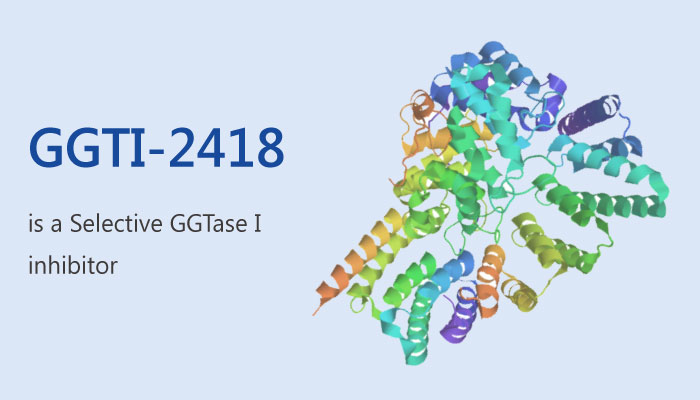Members of the Ras and Rho family of GTPases are signal transducers that regulate many biological processes, including cell cycle progression, cell survival, and cell differentiation. When persistently activated, GTPases promote several oncogenic events, including uncontrolled proliferation, resistance to apoptosis, sustained angiogenesis, invasion, and metastasis. The ability of the GTPases to mediate tumorigenic events requires their posttranslational modification with farnesyl and geranylgeranyl lipids. Especially, the enzymes responsible for these modifications are farnesyltransferase (FTase) and geranylgeranyltransferase I (GGTase I).
Rab geranylgeranyltransferase also known as geranylgeranyltransferase II is one of the three prenyltransferases. It transfers (usually) two geranylgeranyl groups to the cystein(s) at the C-terminus of Rab proteins. As a result, inhibitors of FTase (FTIs) and GGTase I (GGTIs) are potential anticancer drugs.

In this study, Aslamuzzaman Kazi,et al described the design of GGTI-2418. GGTI-2418 is a potent and selective peptidomimetic inhibitor of geranylgeranyltransferase I (GGTI). In vitro, GGTI-2418 inhibits GGTase I and FTase activities with IC50s of 9.5±2.0 nM and 53±11 μM, respectively. In nude mouse xenografts, GGTI-2418 significantly inhibits the growth of breast tumor xenografts and induces regression of ErbB2-driven mammary tumors in transgenic mice. Furthermore, in ErbB2 transgenic mice, GGTI-2418 increases p27Kip1 and induces significant regression of breast tumors. GGTI-2418 therapy inhibits the geranylgeranylation of Rap1 and causes a dramatic decrease in S473 phosphorylation of Akt in vivo. Thus, GGTI treatment might improve the poor prognosis of breast cancer patients with low nuclear p27Kip1 levels.